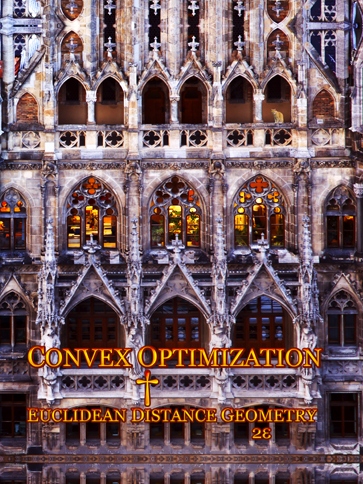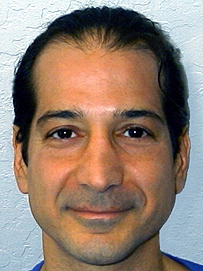
Convex Optimization and Euclidean Distance Geometry 2e
This book is about convex optimization, convex geometry (with particular attention to distance geometry), and nonconvex, combinatorial, and geometrical problems that can be relaxed or transformed into convexity.
Tag(s): Mathematics
Publication date: 01 Apr 2016
ISBN-10: 0578161400
ISBN-13: 9780578161402
Paperback: 668 pages
Views: 7,841
Convex Optimization and Euclidean Distance Geometry 2e
 This book is about convex optimization, convex geometry (with particular attention to distance geometry), and nonconvex, combinatorial, and geometrical problems that can be relaxed or transformed into convexity.
This book is about convex optimization, convex geometry (with particular attention to distance geometry), and nonconvex, combinatorial, and geometrical problems that can be relaxed or transformed into convexity.
Publication date: 01 Apr 2016
ISBN-10: 0578161400
ISBN-13: 9780578161402
Paperback: 668 pages
Views: 7,841
Document Type: Book
Publisher: Meboo Publishing USA
License: n/a
Post time: 24 Oct 2016 09:00:00
In layman’s terms, the mathematical science of Optimization is a study of how to make good choices when confronted with conflicting requirements and demands. Optimization is a relatively new wisdom, historically, that can represent balance of real things. The qualifier convex means: when an optimal solution is found, then it is guaranteed to be a best solution; there is no better choice.
Any convex optimization problem has geometric interpretation. If a given optimization problem can be transformed to a convex equivalent, then this interpretive benefit is acquired. That is a powerful attraction: the ability to visualize geometry of an optimization problem. Conversely, recent advances in geometry and in graph theory hold convex optimization within their proofs’ core. [439] [340]
This book is about convex optimization, convex geometry (with particular attention to distance geometry), and nonconvex, combinatorial, and geometrical problems that can be relaxed or transformed into convexity. A virtual flood of new applications follows by epiphany that many problems, presumed nonconvex, can be so transformed: [11] [12] [35, ? 4.3, p.316-322] [61] [97] [163] [166] [294] [318] [326] [385] [386] [436] [439] e.g, sigma delta analog-to-digital (A/D) audio converter antialiasing (Figure 1).
Tweet
About The Author(s)
Stanford PhD in EE in Mathematical Optimization and Machine Learning, principal advisor Stephen Boyd (author of Convex Optimization), MSE Purdue, BSEE University of Rhode Island. Engineer for Ensoniq and Lexicon Corps: electronic musical instrument design, hearing aid design, computer cpu design for Digital Signal Processing. Duo solo pianist with Boston Symphony Orchestra, composer, attended New England Conservatory of Music.

Stanford PhD in EE in Mathematical Optimization and Machine Learning, principal advisor Stephen Boyd (author of Convex Optimization), MSE Purdue, BSEE University of Rhode Island. Engineer for Ensoniq and Lexicon Corps: electronic musical instrument design, hearing aid design, computer cpu design for Digital Signal Processing. Duo solo pianist with Boston Symphony Orchestra, composer, attended New England Conservatory of Music.